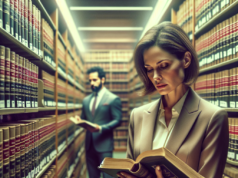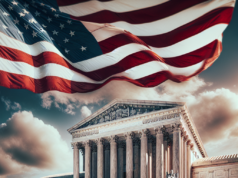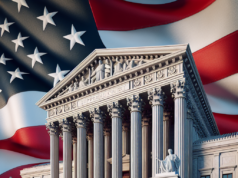
In an era where the courtroom often serves as a stage for public scrutiny, high-profile legal battles have become emblematic of societal tensions and moral dilemmas. From celebrity trials to corporate malfeasance, these controversies not only captivate the public’s attention but also challenge the very foundations of justice and ethics. This article delves into some of the most shocking legal controversies of our time, exploring their historical context, landmark cases, the media’s role, ethical implications, and the influence of social media on public discourse.
The Rise of High-Profile Legal Battles: A Historical Overview of Controversies
The phenomenon of high-profile legal battles is not a recent development; it has roots that trace back centuries. Historical cases, such as the trial of Socrates in ancient Greece and the infamous Salem witch trials, set precedents for public trials that often blurred the lines between law and spectacle. In the 20th century, cases like the Scopes Monkey Trial and the O.J. Simpson murder trial further exemplified how legal proceedings could captivate the public imagination and provoke widespread debate. The rise of mass media and, more recently, digital platforms has only amplified the visibility of these cases, transforming them into cultural touchstones that reflect societal values, fears, and conflicts.
Case Studies: Examining Landmark Trials That Shook Public Perception and Trust
Several landmark trials have left indelible marks on public perception and trust in the legal system. The trial of George Floyd’s murderer, Derek Chauvin, became a pivotal moment in the Black Lives Matter movement, igniting global protests and discussions about systemic racism and police brutality. Similarly, the Harvey Weinstein trial exposed the pervasive issue of sexual assault in the entertainment industry, leading to the #MeToo movement and a reevaluation of power dynamics in various sectors. These cases not only highlighted the failings of the justice system but also served as catalysts for societal change, prompting calls for reform and accountability.
The Role of Media in Shaping Public Opinion During Legal Controversies
Media coverage plays a crucial role in shaping public opinion during legal controversies. The 24-hour news cycle, coupled with the rise of social media, has transformed how information is disseminated and consumed. In high-profile cases, sensationalized reporting can lead to a trial by media, where public sentiment is swayed before the legal process has even begun. The coverage of the Casey Anthony trial, for instance, raised questions about the ethics of media involvement in legal proceedings, as the intense scrutiny may have influenced jurors’ perceptions. As the line between journalism and entertainment blurs, the responsibility of the media to provide fair and accurate reporting becomes increasingly critical.
Ethical Dilemmas: The Intersection of Law, Morality, and Public Sentiment
Legal controversies often bring to light ethical dilemmas that challenge the intersection of law, morality, and public sentiment. The question of whether the legal system can truly deliver justice in cases rife with societal bias is a recurring theme. For example, the trial of Brock Turner, a Stanford University student convicted of sexual assault, sparked outrage when he received a lenient sentence, leading to widespread discussions about privilege and the treatment of sexual assault cases. These ethical quandaries force society to confront uncomfortable truths about systemic inequalities and the moral responsibilities of those within the legal system.
The Impact of Social Media on Legal Proceedings and Public Discourse
Social media has revolutionized the way legal controversies are discussed and perceived. Platforms like Twitter, Facebook, and Instagram allow for real-time commentary and mobilization of public opinion, often resulting in viral hashtags and movements. The trial of Kyle Rittenhouse, for instance, saw a significant social media presence that influenced public discourse and polarized opinions. While social media can empower marginalized voices and foster community support, it also poses risks, such as the potential for misinformation and the pressure it places on legal proceedings. The challenge lies in balancing the benefits of public engagement with the need for a fair and impartial judicial process.
Future Implications: Lessons Learned from Recent Legal Controversies and Their Outcomes
As society reflects on recent legal controversies, several lessons emerge regarding the future of the legal system and public trust. The need for transparency, accountability, and reform is more pressing than ever, as evidenced by the ongoing discussions surrounding police reform and judicial practices. Furthermore, the role of the media and social media in shaping narratives around legal cases necessitates a reevaluation of ethical standards in reporting and public discourse. Ultimately, the outcomes of these high-profile trials will continue to influence societal norms and expectations, underscoring the importance of a legal system that is not only fair but also perceived as just by the public it serves.
In conclusion, the most shocking legal controversies of our time serve as a mirror reflecting societal values, ethical dilemmas, and the evolving landscape of public discourse. As we navigate the complexities of justice in an age of information overload, it is imperative to learn from these cases to foster a legal system that upholds the principles of fairness, accountability, and integrity. The interplay between law, media, and public sentiment will undoubtedly shape the future of legal proceedings, making it essential for all stakeholders to engage thoughtfully in these critical conversations.





























